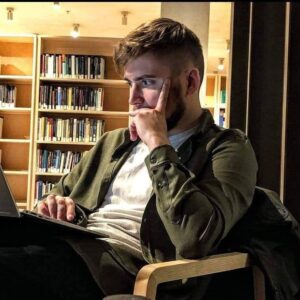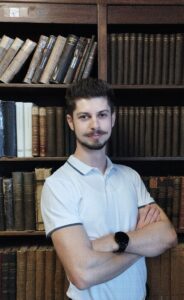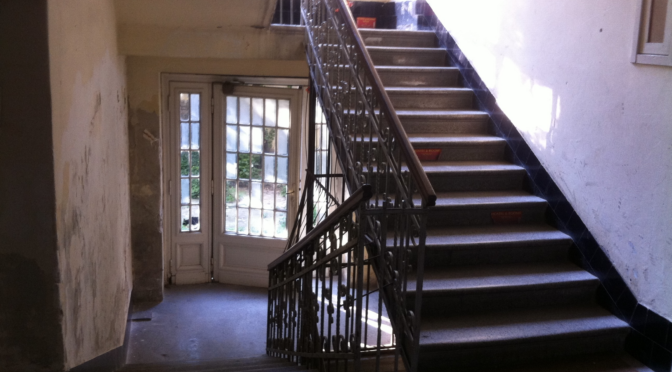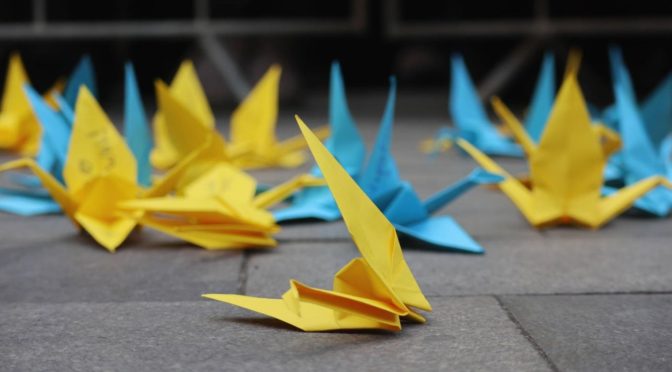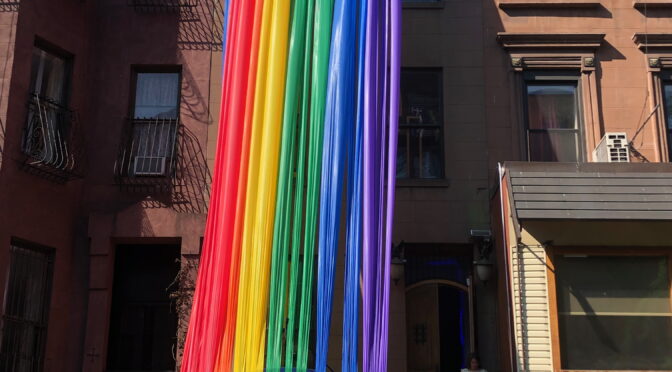“Towards What Homeland?
(Trans)National Armies in Exile and Renegotiations of Polish and Czechoslovak National Narratives, 1938-48“
Contact: aksnowicz_adam@phd.ceu.edu
Research Area 1 – Displacements, “Dépaysements,” and Descrepancies: People, Knowledge, and Practices
Adam M. Aksnowicz is a doctoral candidate at the Department of History, Central European University in Vienna, Austria. His dissertation, Towards What Homeland? (Trans)National Armies in Exile and Renegotiations of Polish and Czechoslovak National Narratives, 1938-48, under the supervision of Constantine Iordachi and Charles Shaw, is being developed in cooperation with CEFRES Research Area 1.
My dissertation reassesses the historical phenomenon of national armed forces in exile during the Second World War by analyzing military nation-building projects of Polish armies in exile and the Czechoslovak resistance abroad from transnational, comparative, and global perspectives. Building from my previous MA thesis entitled, “Without Lwów and Wilno There is No Poland” The Cause of Kresy in Exiled Polish Army Press and Propaganda in Italy, 1944-1946, my current project explores conceptual-historical complexities and persistent legacies of national-military exile(s) in renegotiations of nation, state, and homeland between the downfall of the young post-Versailles republics and the radical post-war reconstruction of East Central Europe. By contextualizing Polish and Czechoslovak military exile within transnational, global, and imperial-colonial entanglements of Europe’s early twentieth-century’ “age of catastrophe” (Doumanis 2016), I aim to move beyond dominant national-patriotic approaches and binary Cold War frameworks to contribute to new critical scholarship of exiled state apparatuses during WWII and engage with interdisciplinary discussions surrounding topics like exile, civil-military relations, transnationalities of nation-building, and collective narrative (re)construction.
As a researcher with a background in both sociology and history, my research to date has primarily focused on historical and collective memory studies of interwar, wartime, and early Cold War Poland/Polish diaspora in global contexts. However, during my time in Prague with CEFRES, I look forward to further developing the comparative Czechoslovak dimension of my dissertation by visiting the Czech state archives as well as discussing other analogous cases of exile/displacement with like-minded colleagues to strengthen the project’s overall conceptual framework.
Education
- 2022 – current: PhD Candidate, Comparative History at Central European University, Vienna, Austria.
- 2019-2020: MA, Comparative History at Central European University, Budapest, Hungary.
- 2016-2018: MA, Sociology – Intercultural Mediation at University of Wrocław, Wrocław, Poland. Winner of the Dean’s Award for Best MA Thesis at UWr Faculty of Social Sciences (2018).
- 2012-2014: BA, History at the University of Illinois Chicago (UIC), Chicago, Illinois, USA.
Teaching Experience
- 2023/2024 Fall: Teaching assistant in Comparative, Transnational and Global Histories: Rethinking Geographical and Temporal Scales, under the instruction of Balázs Trencsényi. Department of Comparative History at Central European University, Vienna, AT.
Conferences & Summer Schools
- Presenter – (Non)Polish Army in Exile? Researching the Red Army’s Kościuszko Division Between History and Contested Memory. VIII Public History Summer School. The Historical Institute of the University of Wrocław, Poland (HI UWr), Wrocław, PL, 9-13 June 2025.
- Presenter – Antisemitism, Propaganda, and Polish Armies in Exile during WWII. ComFas Summer School on Fascism, Antisemitism and the Holocaust: Theory, Methodology, and Case Studies. International Association for Comparative Fascist Studies (ComFas), Rijeka, HR, 9-14 July 2023.
- Presenter – Echoes of Wartime Trauma: Children of Polish Deportees Living in the West after WWII. XIX International Student Conference “Communication and Culture” at University of Wrocław, PL, 23-24 May 2018.
- Presenter – The Holy Constitution? Sacred Roles of Historic Legal Text in Democratic Nation-States. IV International Conference “Law-Religion-Politics.” SKN Doctrines of Politics and Law at the University of Wrocław, PL, 13-14 April 2018.
- Panel Moderator – Postwar Generations Remember (Concluding Panel). Kresy Siberia Foundation “Generations Remember” Conference at The History Meeting House, Warsaw, PL, 15-17 September 2017.
- Presenter – Orange Dwarves and Pepe the Frog: A Comparison of Absurdity as Political Tactic by Poland’s Historic Orange Alternative and the Contemporary American Alt-Right. XVIII Annual International Student Conference “Communication and Culture” at the University of Wrocław, PL, 25-26 May 2017.
Publications and Projects
- Nowy rozdział starej Res Publica Nowa, 4 July 2022.
- A New Approach to CEE Communism Studies. Reassessing Communism: Concepts, Culture, and Society in Poland, 1944–1989. Visegrad Insight, 5 October 2021.
- Uses and Abuses of Political Appeals to ‘Civilization’: Kathryn Ciancia’s Book on Interwar Borderland in Poland. Visegrad Insight, 31 March 2021.
- A Century of Demagogues in Europe: Ivan T. Berend’s Portraits of Populists between Past and Present. Visegrad Insight, 7 January 2021.
- Co-Editor of The Polish Museum of America Visitor Brochure, Chicago, USA. Grant Project Funded by the Republic of Poland’s Ministry of Culture and National Heritage, 2015.
- Co-Creator of The Polish Museum of America’s Online Collections Database, Chicago, USA. Grant Project Funded by the Republic of Poland’s Ministry of Culture and National Heritage, 2014. URL: https://polishmuseum.pastperfectonline.com/

